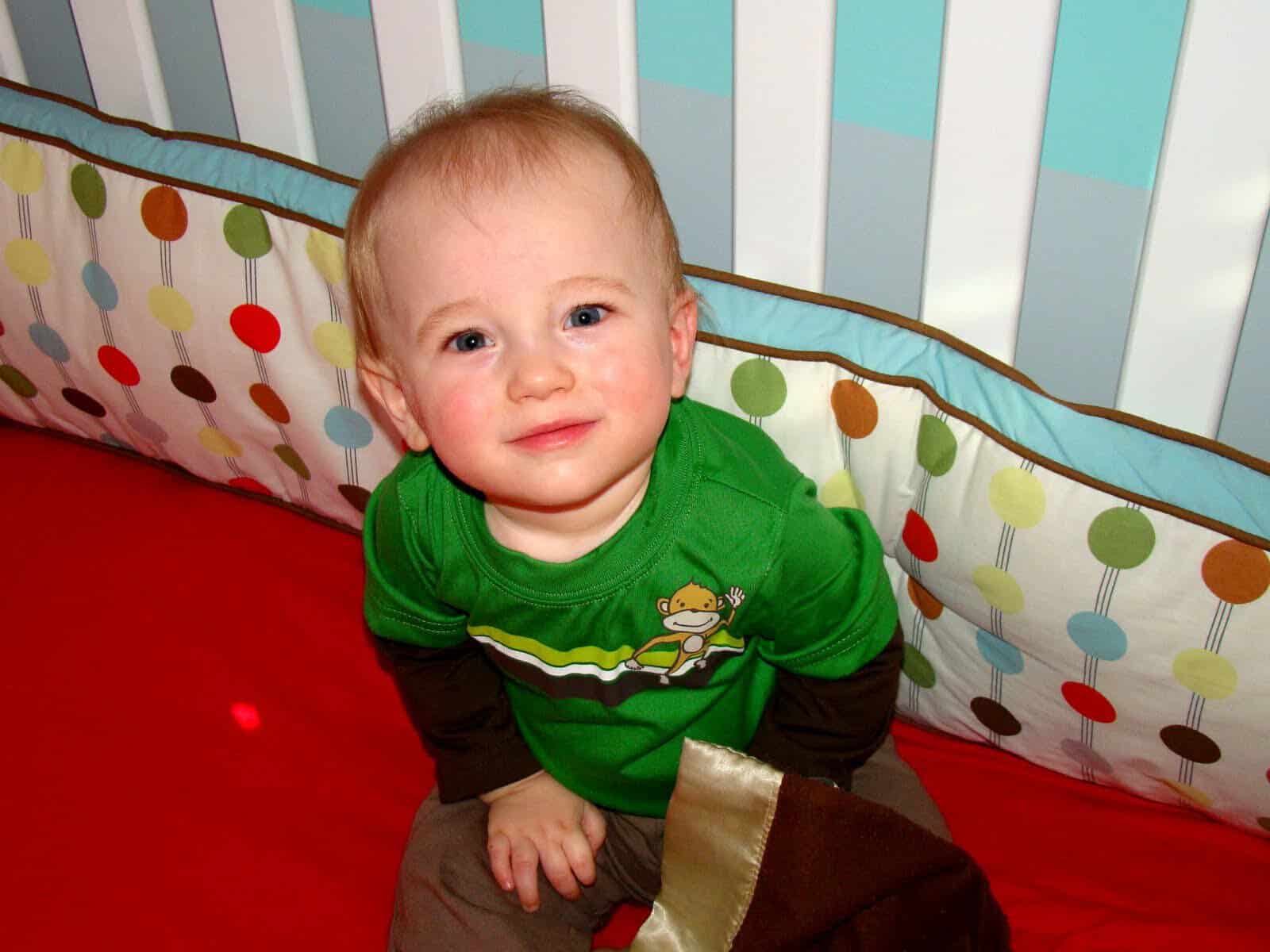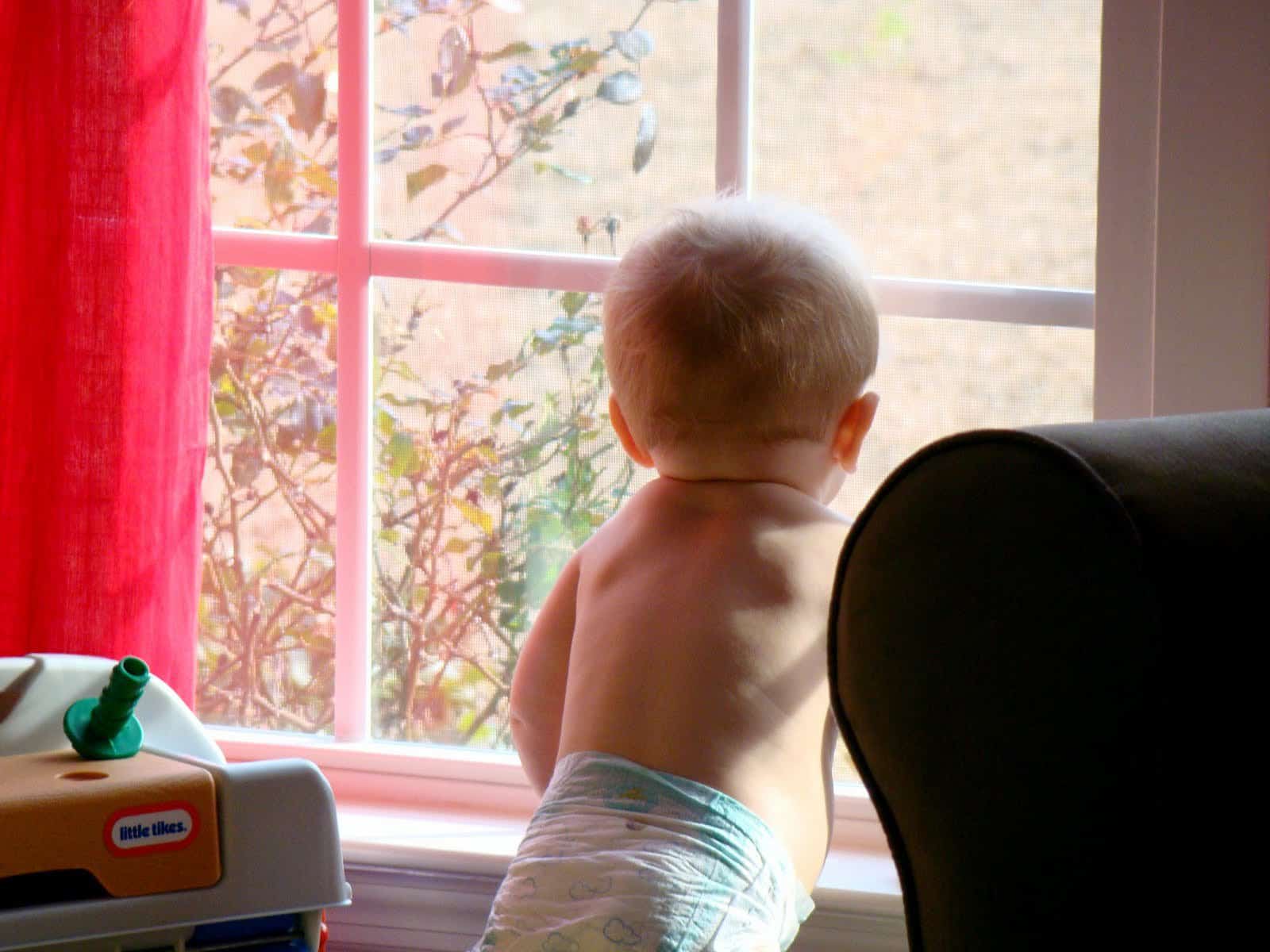ONE month to go until the BIG birthday!!!
Here’s a look at what Kye can do compared to the “norm” for this age. I use What to Expect The First Year as a guide (and have ordered What to Expect The Toddler Years)!!! This month I had a lot of cute “bonus” pictures that just didn’t seem to fit in with any other blog entries so I included them here. Now that I’m going to for sure do the blog book thing I want to include as many pictures as possible 🙂
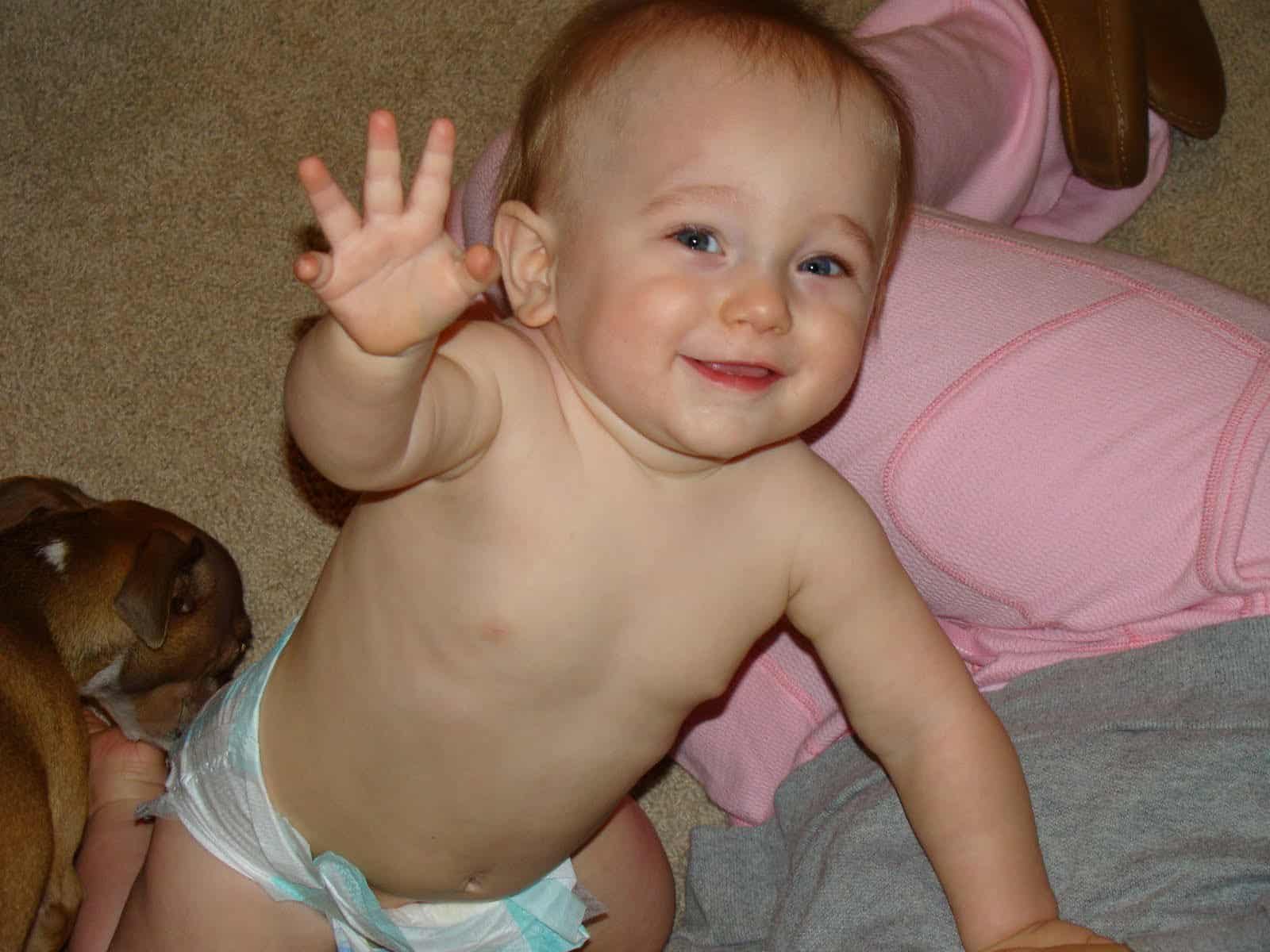
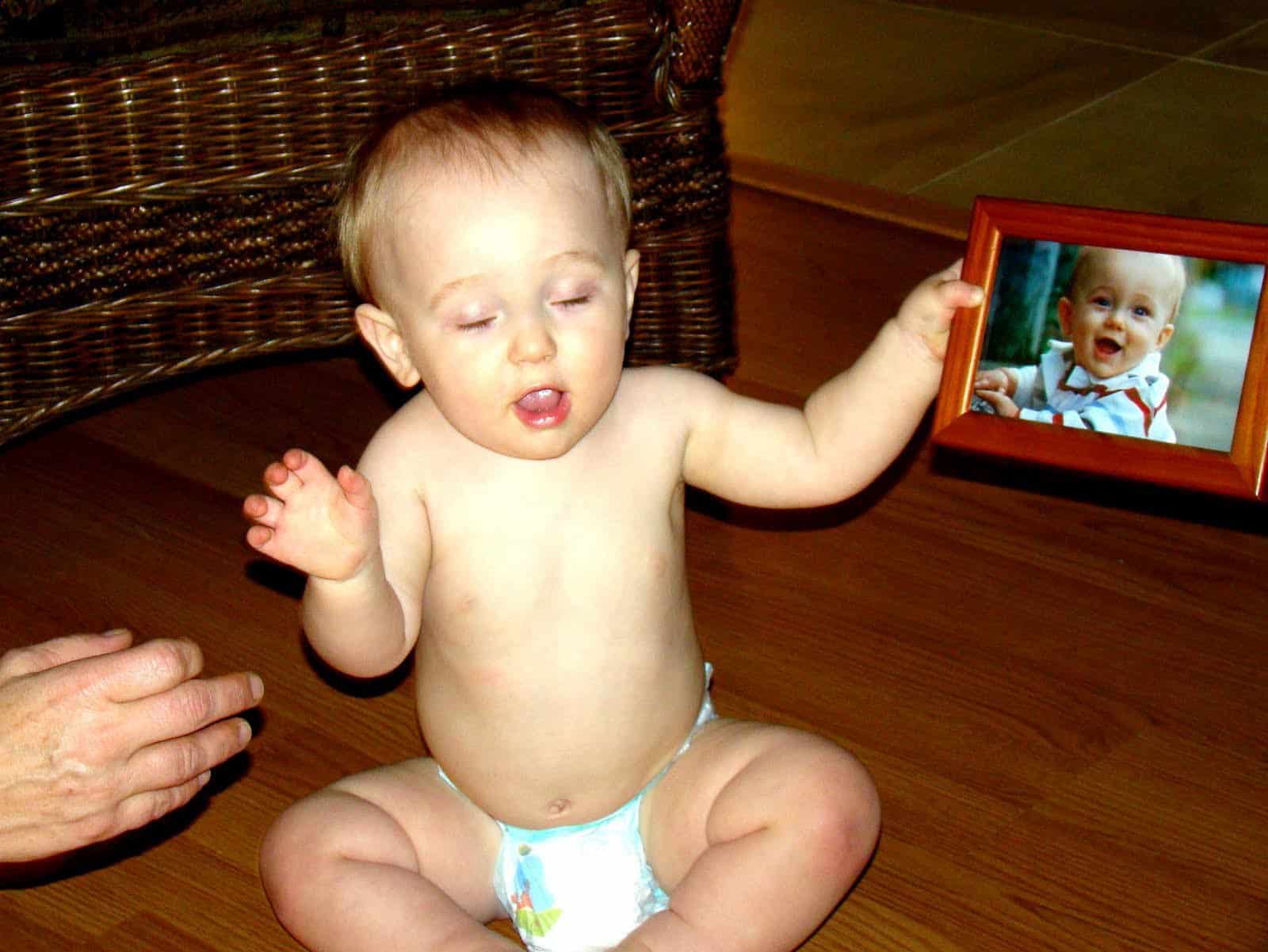
This month Kye can do all the things he “should” be able to do including:
- get into a sitting position from stomach
- pick up a tiny object with any part of thumb and finger
- understand no but not always obey it
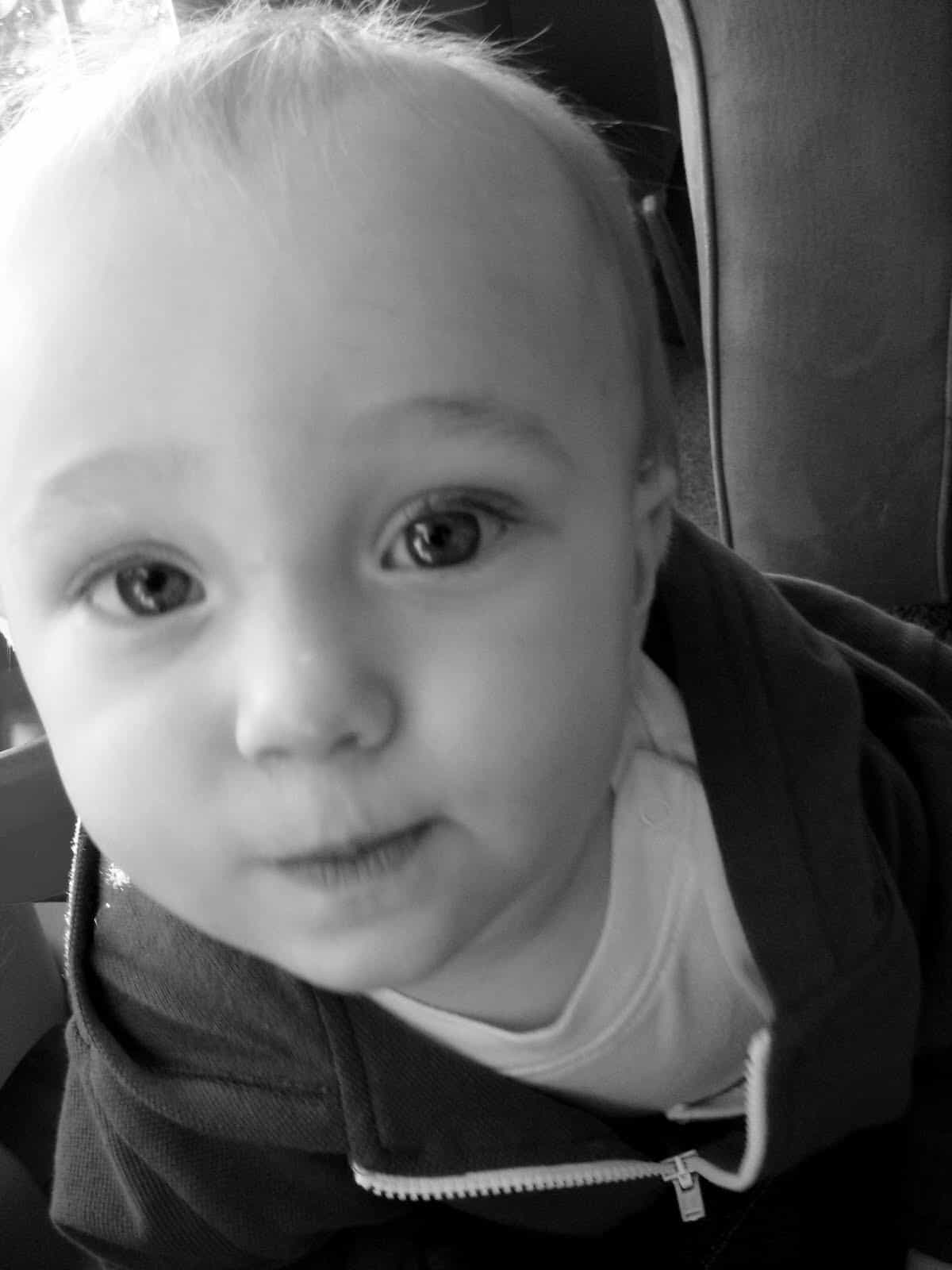
Kye can do all the things an 11 month old “will probably” and “may possibly” be able to do including:
- play patty-cake or wave bye-bye (does NOT play patty-cake but is a pro at the bye-bye)
- walk holding on to furniture, cruise
- point or gesture to something to get needs met (reaches for it with open hand)
- pick up a tiny object neatly with tips of thumb and forefinger
- stand alone momentarily
- say “dada” or “mama” discriminately (POST TO COME YAYAYAYAY!)
- say one word other than “dada” or “mama” (duck for sure, hey, bye, Sadie are all clear!)
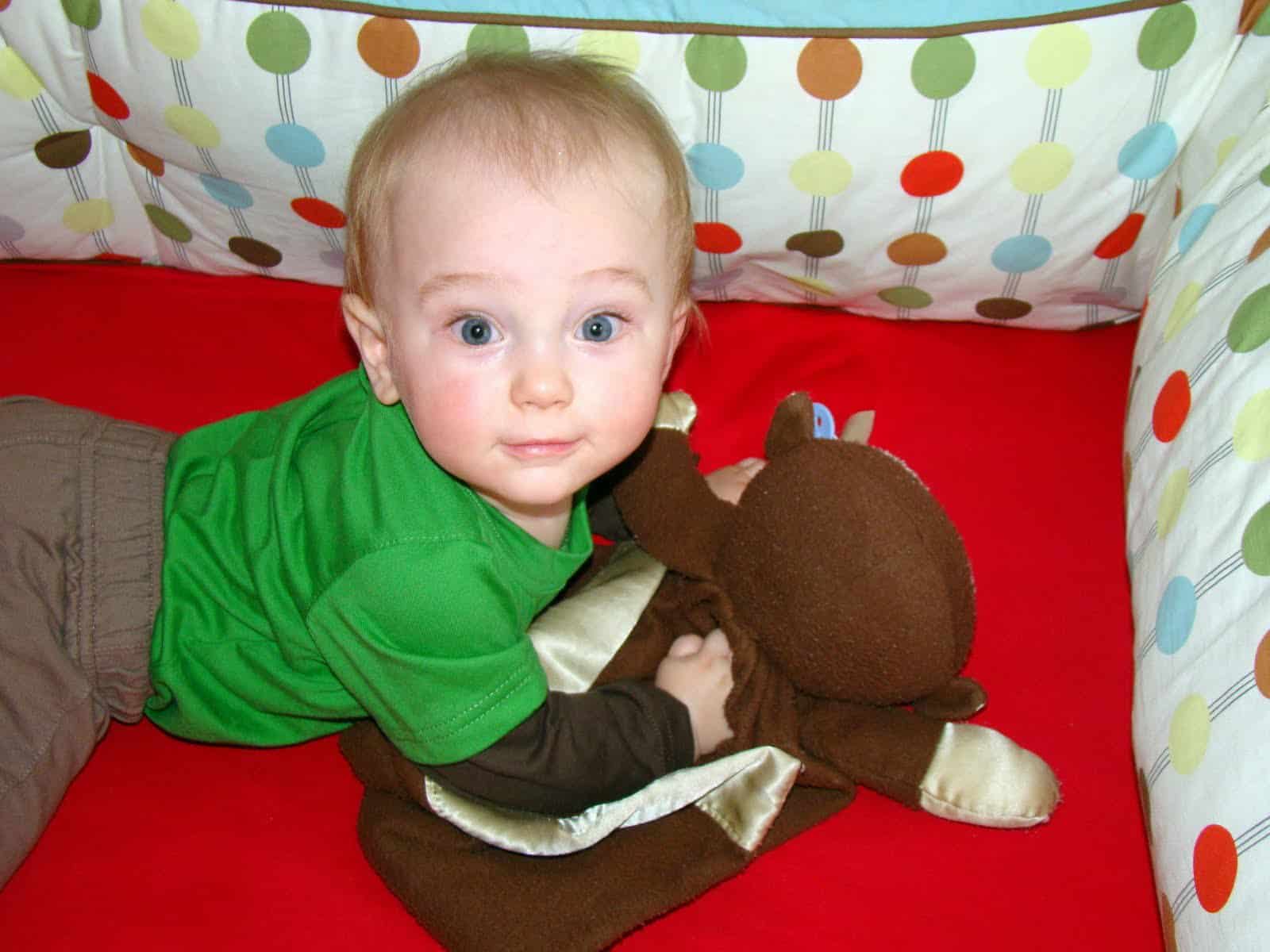
Kye can do most of the things that an 11 month old “may even be able to do” including:
- indicate wants in ways other than crying (he’ll say or gesture “more”)
- “play ball” rolling ball back to you (he actually can throw it too!)
- drink from a cup independently (he drinks from all sippy cups on his own but still sits in my lap)
- ise immature jargoning, giberish that sounds as if baby is talking a made up foreign-language (he talks non-stop!)
- say three or more words other than “mama” or “dada” (again the clearest ones are: Sadie, hey, bye, and duck although there have been moments where he’s said other words very clearly but not on a regular basis)
- respond to a one-step command without gestures such as “give that to me” without the hand out (I say “put the toy in the basket” and he does it!)
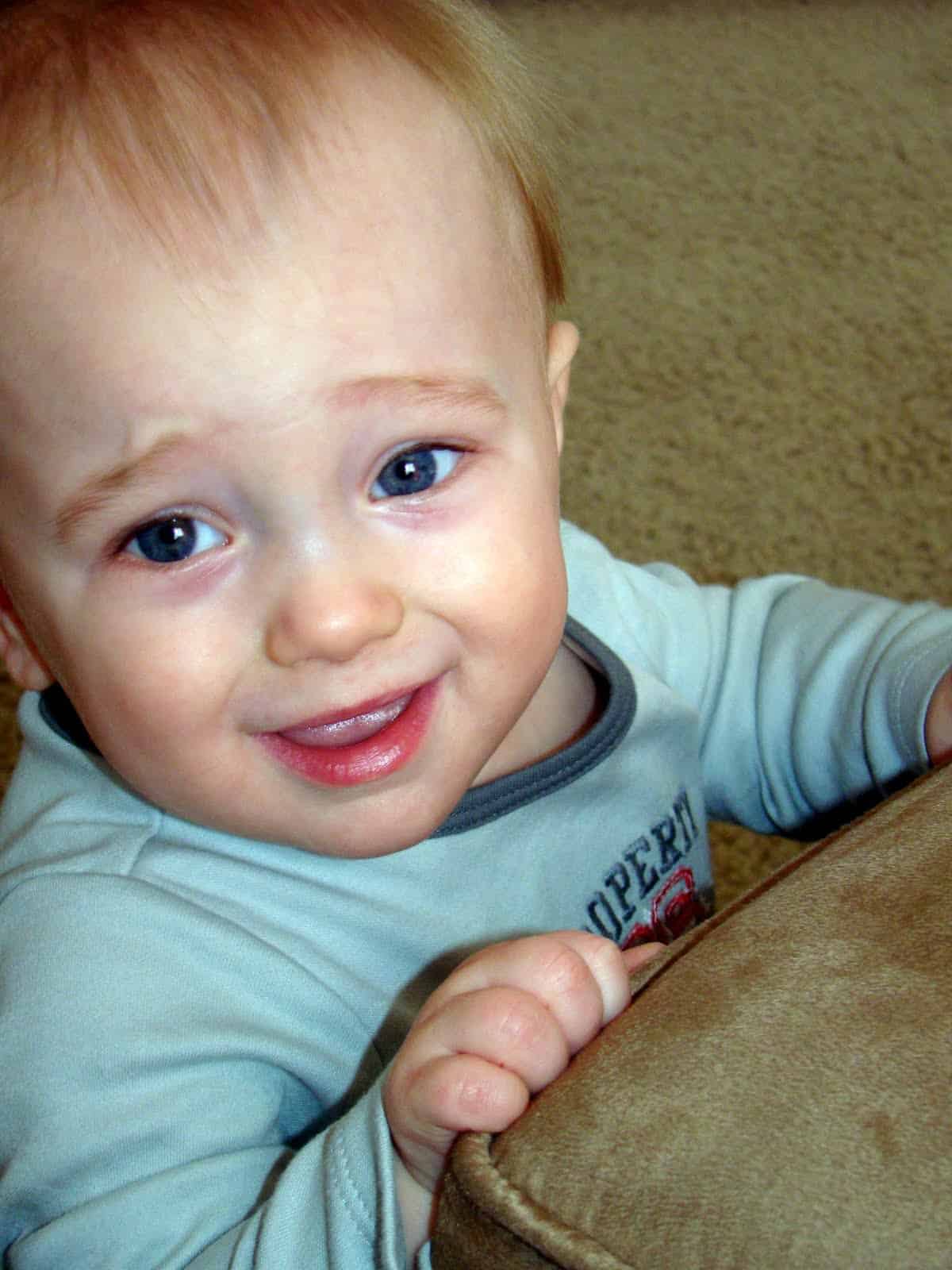
Things Kye isn’t quite doing yet include:
- standing alone well (I think he CAN but doesn’t want to! stubborn child!)
- walk well (phhh no where close!)
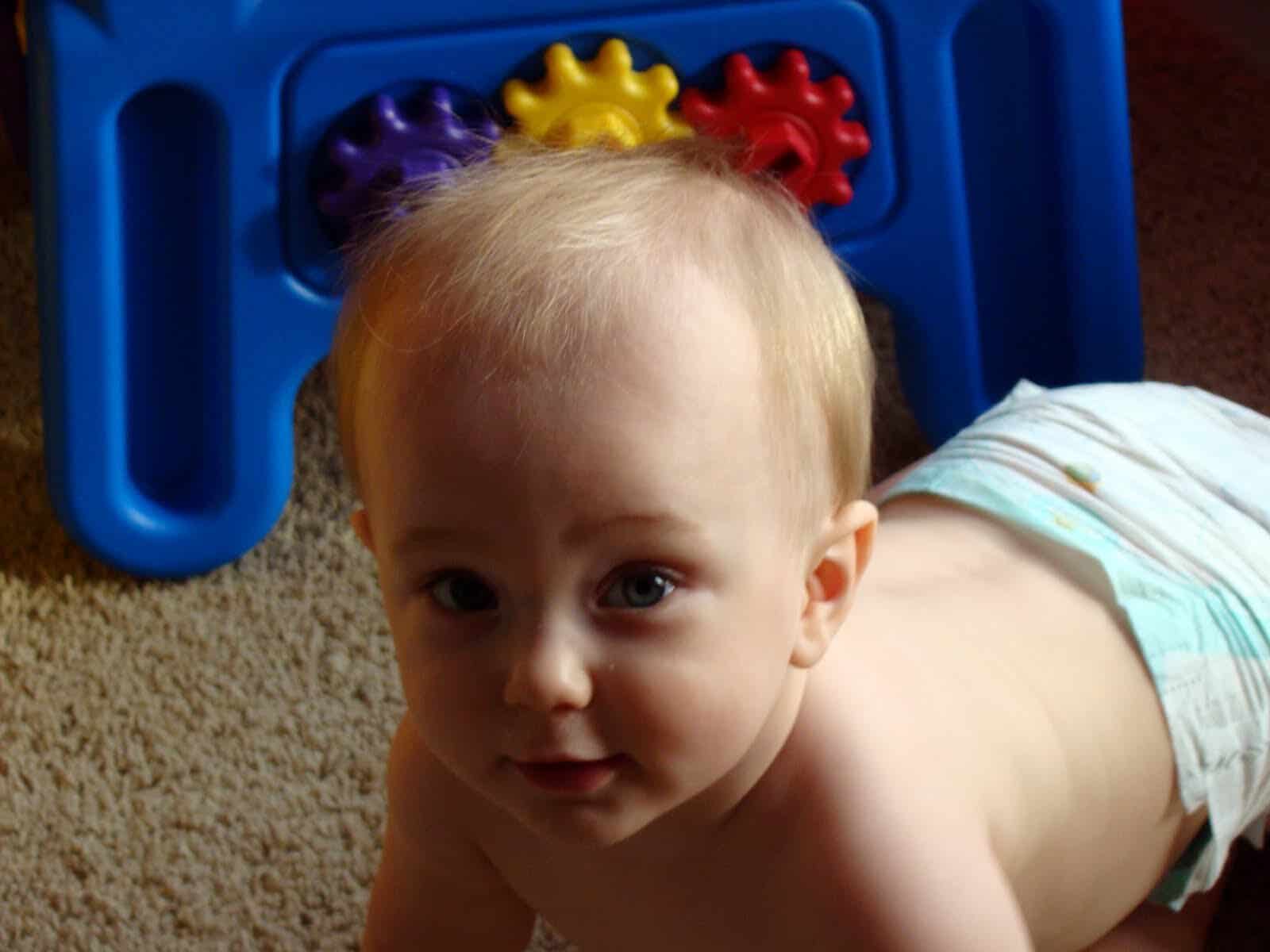
Some of the things covered in the chapter were of little interest to me as seems to typically be the case. I pretty much buy this book just for the developmental section haha. It had a large section on weaning from the bottle which doesn’t apply to us. Also talked about some walking concerns such as bowed legs (don’t apply at least not yet!) and falling (I don’t freak out at ALL with falls which it says is a good thing). It has an interesting area about parent nudity and it says that it’s fine to be naked with your kids until they are in pre-school (4ish) and then it’s better to cover up as until that age they don’t think anything of it and won’t have any memory of it. Obviously with Kye and Zach nudity till whenever would be fine (as it would be if Kye were a girl with me) but at age 4 I should probably not be naked around him. I wonder how that will play into nursing the future kids? I guess he’ll be old enough to go in another room?
The bulk of the chapter covered tips on helping baby to talk. I’m ALL about helping him develop his vocabulary so I read this section pretty carefully! Some of the tips include:
- label everything: I do this some but could do better. On our walks I don’t even talk to him but I should start labeling the cars, houses, trees etc.
- listen: When you ask the baby questions wait for an answer even if you can’t understand them (I always do this with the flashcards, I ask him to say the word and wait for some type of response. Typically he doesn’t say the actual word but often his gets the right amount of syllables). It says to listen for him using his “language” and that he IS saying REAL words but I just can’t understand them yet. If he uses the same jumble for an object then that’s probably what he calls it! Kinda neat!
- concentrate on concepts: hot and cold, up and down, in and out (do this one with the drawers allll day long), empty and full, stand and sit, wet and dry, big and little
- explain environment and cause and effect: Say things such as “the sun is bright so we have light” and “flip the switch up and the room becomes light” etc. Explain why and how things work and what they are.
- become color conscious: Even though kids don’t “learn” colors until around 3 it says to go ahead and start saying the colors of everything (I’ve done this since birth)
- use double-speak: I don’t agree with this. It says to talk in adult THEN talk again in baby talk. I don’t agree with baby talk (such as saying “oh you’ve finished your snack” and then saying “kye made all gone”) and won’t be using it. Why teach something you don’t want him to say?
- don’t talk like a baby: Funny! I just wrote the above and then the next section agreed with me haha! It says that talking like an adult will help the child learn to talk sooner but that such phrases as “doggie” are okay to use
- introduce pronouns: Even though it will take a LONG time for him to use them correctly, it’s important to use them in everyday speech (I already do that naturally, don’t we all?)
- urge baby to talk back: ask a lot of questions and try to get a response, even if it’s just a shake of the head. Give choices for things and cheer him on when he gets something correct or responds in any way!
- never force it: If he grunt or points to something I should say “tell Mommy what you want” then if he does it again I should give him a choice such as “do you want the block or the truck?” if he still responds non-verbally then I should verbalize it myself such as “of you want the truck” when I hand it to him. Great tip!!! I totally plan on using this as I see how it’ll help! Obviously it says not to ever withhold something because he can’t say it…it should be a FUN way of learning
- keep directions simple: give one-step instructions
- correct carefully: while you shouldn’t repeat the cute way babies may say things (it’s best to always talk properly so they will learn properly) you shouldn’t get onto him for saying it wrong either as too much criticism could make him stop trying. For example: he says “moom tar” respond with “that’s right there’s the moon and the stars”
- expand your reading repertoire: rhyming books are great at this age. ask a lot of questions to encourage interaction
- think numerically: count out loud with things all the time as it’ll help him develop math skills as he gets older (I also already have done this from birth)
- use signs: signing encourages communication, enhances understanding, and even promotes language development (this is something I need to work more on as I thought he’d pick it up better by now)
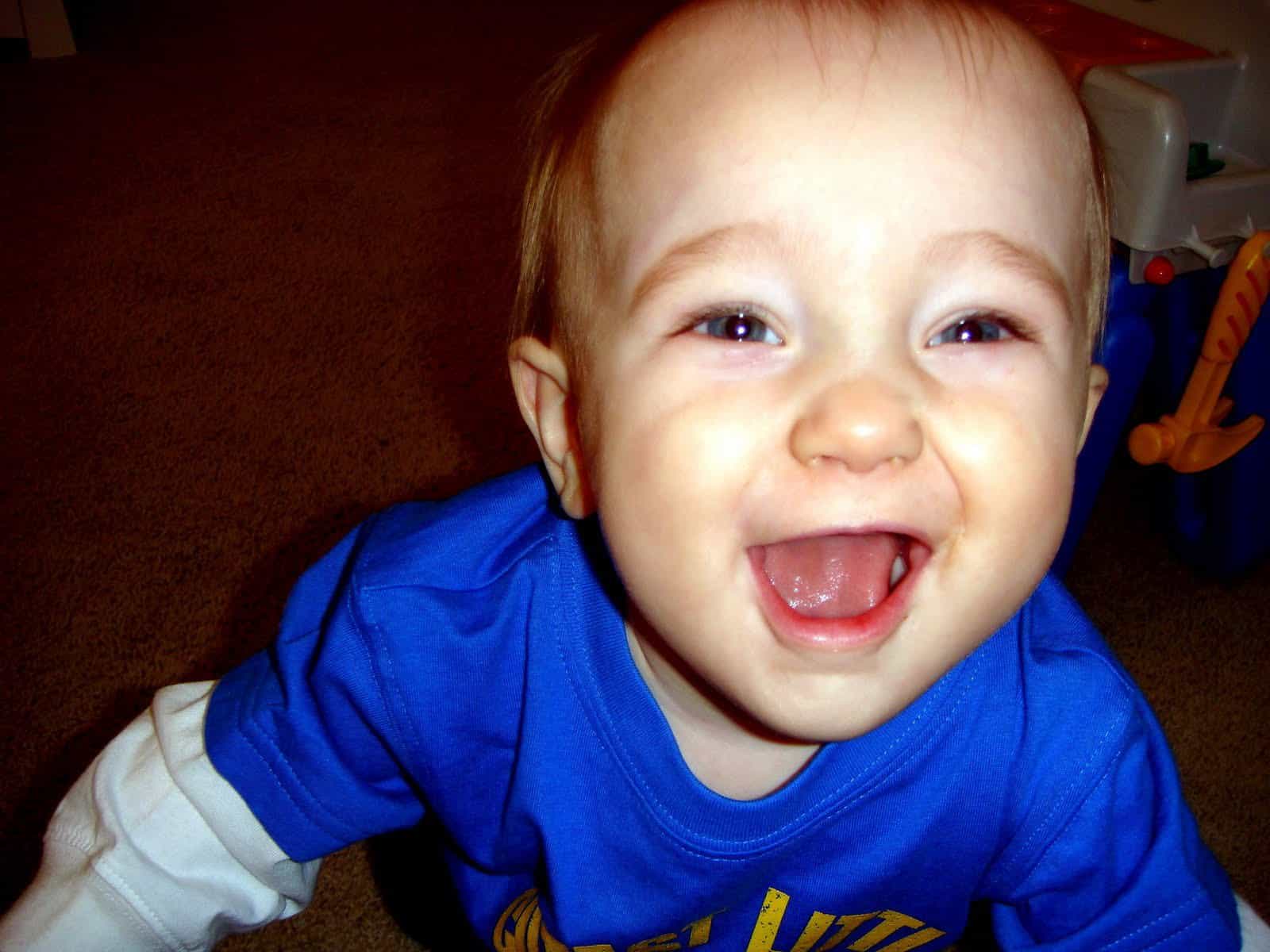
- A Letter to my Son on His 16th Birthday From Mom (Kye’s Bday Letter) - March 20, 2025
- Open Letter to my Daughter on her 12th Birthday – Love, Mom {Britt’s 12th Bday Letter} - January 16, 2025
- Letter to My Son on his 6th Birthday – Love Mom - January 8, 2025





